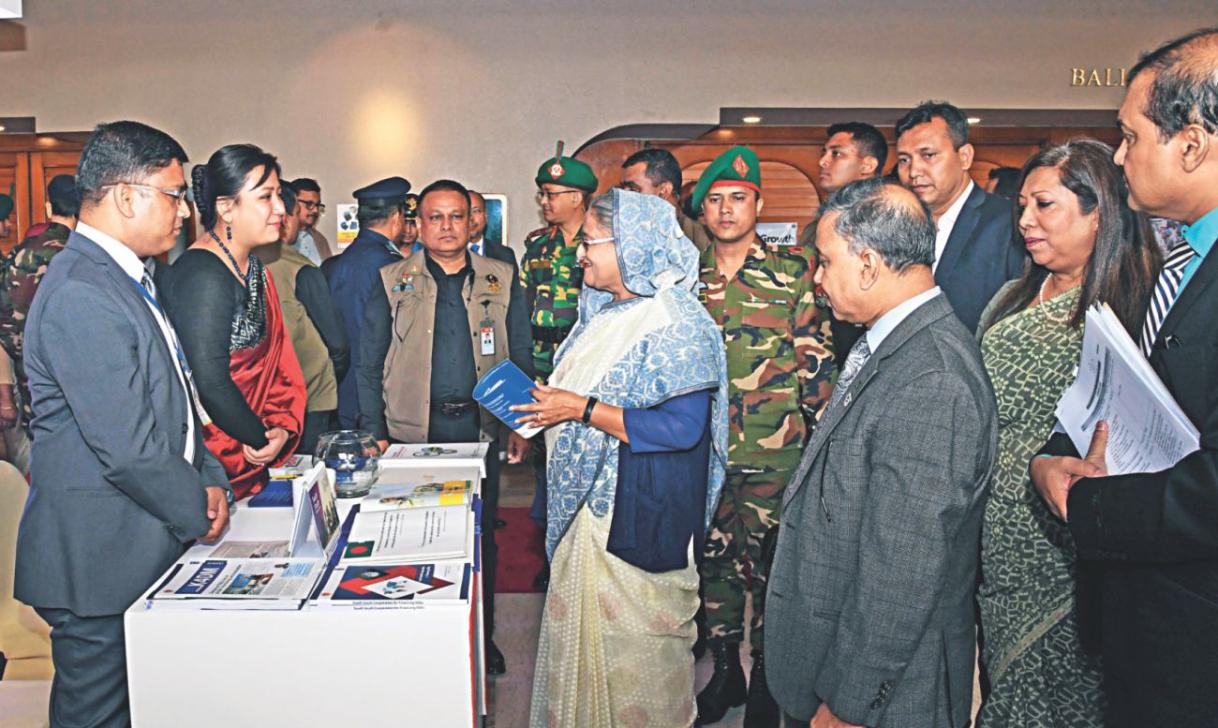PM urges expat engineers to invest in economic zones

Prime Minister Sheikh Hasina yesterday said Bangladeshi expatriates can come up with their investment in the country's 100 economic zones alongside foreign investors.
"We're setting up 100 economic zones. Not only the foreigners, but also our expatriates should invest there...we hope that as we've created scope for the expatriates to make investment (in the country)," she said.
The prime minister said this while inaugurating the two-day Convention of Non-Resident Bangladeshi (NRB) Engineers at Pan Pacific Sonargaon hotel in the city.
Noting that industrialisation and investment are badly needed for Bangladesh, Hasina said the government has created scope for investment and it provides various facilities to foreign investors.
She said the government wants to develop not only the cities or the capital but also every village across the country.
She urged the Bangladeshi expatriates to pay special attention to the development of their ancestral villages tracing their roots.
"Though you came here from abroad today, you have the roots in any village of Bangladesh. So, I request you to find your roots and think how you can develop your own area," she said.
The premier said the 100 industrial zones are being set up to attract local and foreign investment so that the country's production and investment go up on one hand and jobs are created on the other.
Pointing at the NRBs, she said the country's local market is gradually expanding. Besides, the government is improving the communications system with neighbouring countries to use their larger markets, she said.
Hasina stressed the need for diversifying export items reducing dependence on one product.
"It's true we're the second largest garment exporter in the world. But we'll have to keep in mind that one country cannot depend on one export item. Our export will have to be diversified," she said.
With this view in mind, the government started research works on jute so that jute items can be produced as it is an environment-friendly one. "We've this opportunity. We've to utilise this," she said.
Hasina also emphasised the importance of exporting processed food items and ICT products.
The prime minister said the expatriates always played a bold role in the international arena over every movement and struggles of Bangladesh, including the Liberation War and the Agartala false case filed after the declaration of the 1966 Six-Point movement.
Noting that Bangladesh is now self-sufficient in producing safe water fish, Hasina said the government has taken measures to unlock the huge potential of marine resources after having a vast sea area.
Talking about the country's development, Hasina said Bangladesh is marching forward in every sector. So, Bangladesh is now recognised as the 41th largest economy in the world and one of the top five countries in terms of economic progress, she said.
Bangladesh has been able to increase the GDP growth to 7.86 percent, she said expressing the hope that it will reach the double digit in the nearest future.
The per capita income of the country has increased to $1,751, while the poverty rate came down to 21 percent, Hasina said.
The poverty rate has actually declined further after the last census and it will be visible in the next census report, she said.
She said the social safety net programme and 'my-house my-farm' project are playing a big role in poverty alleviation.
Chaired by Planning Minister MA Mannan, the inaugural session of the convention was addressed, among others, by National Professor Dr Jamilur Reza Choudhury, Economic Relations Division's (ERD) Acting Secretary Monowar Ahmed and Chairman of the Bridge to Bangladesh Azadul Haque.
Some 300 NRB engineers from 30 countries are participating in the two-day convention, jointly organised by Bridge to Bangladesh, ERD and Access to Information (a2i).
